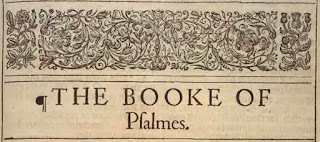Was Jesus Born on December 25?
By Rev. Alexander Hislop
 Many Christian holidays, have their true meanings and even the time they occurred altered The Two Babylons:
Many Christian holidays, have their true meanings and even the time they occurred altered The Two Babylons:by false religion’s influence. Christmas, unfortunately, is one of those days. Although Christ was definitely born on this earth, and all the Bible says about Him is true, false religions and their effort to get people to accept their false teachings successfully merged their doctrines with those of Christianity. Here is some of the history behind how December 25th was adopted to be the day of Christ’s birth, according to Rev. Alexander Hislop’s
- “ … The festivals of [Catholic] Rome are innumerable; but five of the most important may be singled out for elucidation: Christmas day, Lady day, Easter, the Nativity of St. John, and the Feast of the Assumption. Each and all of these can be proved to be Babylonian. And first, as to the festival in honour of the birth of Christ, or Christmas.
- “… How comes it that that festival was connected with the 25th of December? There is not a word in the Scriptures about the precise day of His birth, or the time of the year when He was born. What is recorded there implies that at what time His birth took place, it could not have been on the 25th of December.
- “… At the time that the angel announced His birth to the shepherds of Bethlehem, they were feeding their flocks by night in the open fields. Now, no doubt, the climate of Palestine is not so severe as the climate of this country; but even there, though the heat of the day be considerable, the cold of the night, from December to February, is very piercing, and it was not the custom for the shepherds of Judea to watch their flocks in the open fields later than about the end of October. It is in the last degree incredible, then, that the birth of Christ could have taken place at the end of December.
- “… the celebrated Joseph Mede pronounces a very decisive opinion to the same effect. … At the birth of Christ every woman and child was to go to be taxed at the city whereto they belonged, whither some had long journeys; but the middle of winter was not fitting for such a business, especially for women with child, and children to travel in. Therefore, Christ could not be born in the depth of winter. Again, at the time of Christ’s birth, the shepherds lay abroad watching with their flocks in the nighttime; but this was not likely to be in the middle of winter. And if any shall think the winter wind was not so extreme in these parts, let him remember the words of Christ in the Gospel, ‘… pray ye that your flight be not in the winter … (Mat. 24:20)’. If the winter was so bad a time to flee in, it seems no fit time for shepherds to lie in the fields, and women and children to travel in.”
- “… Indeed, it is admitted by the most learned and candid writers of all parties that the day of our Lord’s birth cannot be determined, and that within the Christian church no such festival as Christmas was ever heard of till the third century, and that not until the fourth century did it gain much observance.
- “… How, then, did the Romish Church fix on December the 25th as Christmas day? Why, thus: Long before the fourth century, and long before the Christian era itself, a festival was celebrated among the heathen, at that precise time of the year, in honour of the birth of the son of the Babylonian queen of heaven; and it may fairly be presumed that, in order to conciliate the heathen, and to swell the number of the nominal adherents of Christianity, the same festival was adopted by the Roman Church, giving it only the name of Christ. This tendency on the part of “Christians” to meet paganism halfway was very early developed; and we find Tertullian, even in his day, about the year 230 AD, bitterly lamenting the inconsistency of the disciples of Christ in this respect, and contrasting it with the strict fidelity of the pagans to their own superstition.
- “… Upright men strive to stem the tide, but in spite of all their efforts, the apostasy went on, until the church, with the exception of a small remnant, was submerged under pagan superstition. That Christmas was originally a pagan festival is beyond all doubt. The time of the year, and the ceremonies with which it is still celebrated, prove its origin.
- “Also, in Egypt, the son of Isis was born at this very time, ‘about the time of the winter solstice’. The very name by which Christmas is popularly known among ourselves — Yule-day — proves at once its pagan and Babylonian origin. ‘Yule’ is the Chaldean name for an ‘infant’ or ‘little child’; and as the 25th of December was called by pagan Anglo-Saxons, ‘Yule-day’, or the ‘Child’s day’. The night that preceded it, became known as ‘Mother-night’, long before (380–362 BC) they came in contact with Christianity. This sufficiently proves the real reason December 25 was selected.”

Comments
Post a Comment